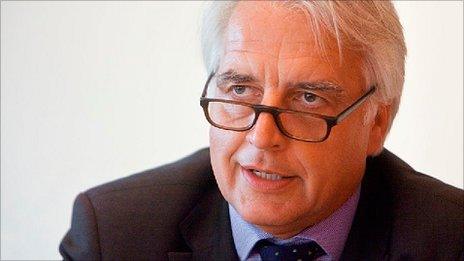Martin Roth: V&A boss leaving 'to fight European nationalism'
- Published
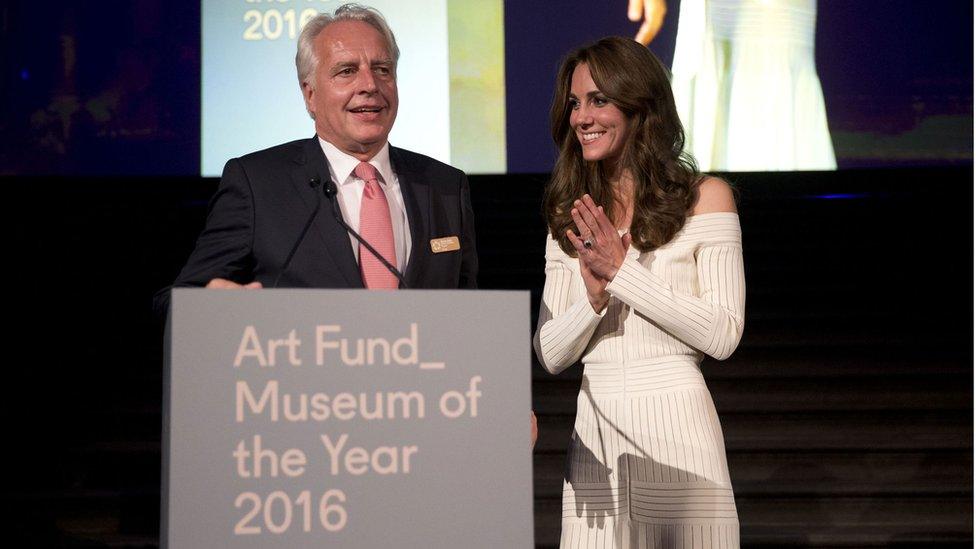
The Duchess of Cambridge presented Mr Roth with The Art Fund's Museum of the Year prize
The Victoria & Albert Museum's outgoing director has said he is leaving partly to become more involved in politics to fight a "new nationalism" in Europe.
Martin Roth announced last week that he is to step down after five years.
At the time, it was suggested that the German's decision was a result of the UK's vote to leave the European Union.
He told BBC Radio 4's Front Row it was "a bit more complicated" than that, but that "the terms and conditions" of life in Britain were changing.
Mr Roth also said it was the right time to leave the V&A, which has enjoyed record visitor numbers and was named the UK's Museum of the Year in July.
"I've thought about it for quite a while because the V&A is in a very good position and if I want to hand it over to the next generation then it's the best time to do it now," he said.
"If I hadn't done my homework or there would be more to do then I would stay longer."
Working for an 'open society'
But he said the Brexit vote has made it more difficult to work with people and institutions abroad and has fed into a personal desire to become more involved in politics, which he could not do while director of the museum.
"I really like this country - I like London, I like to live here," he said. "I don't know if you understand that the terms and conditions are changing. It's rather difficult.
"But it's worse. The UK just started it now but this new nationalism is everywhere - it's a right-wing movement in Germany, it's in France, in the Netherlands, it's everywhere, and I think one has to do something, and that's one of the reasons why I'm leaving."
Growing up in post-war Germany has influenced his desire to stand up against nationalist sentiment in Europe, Mr Roth explained.
"It's not so much about leaving Britain - it's more like it's a perfect moment to hand it over to the next generation but [also] being more engaged in politics. Not as a party member, but being more engaged with NGOs [non-governmental organisations].
"I will be the president of an institution in Stuttgart called the Institute for International Relations. So I want to be more engaged in this open society idea."
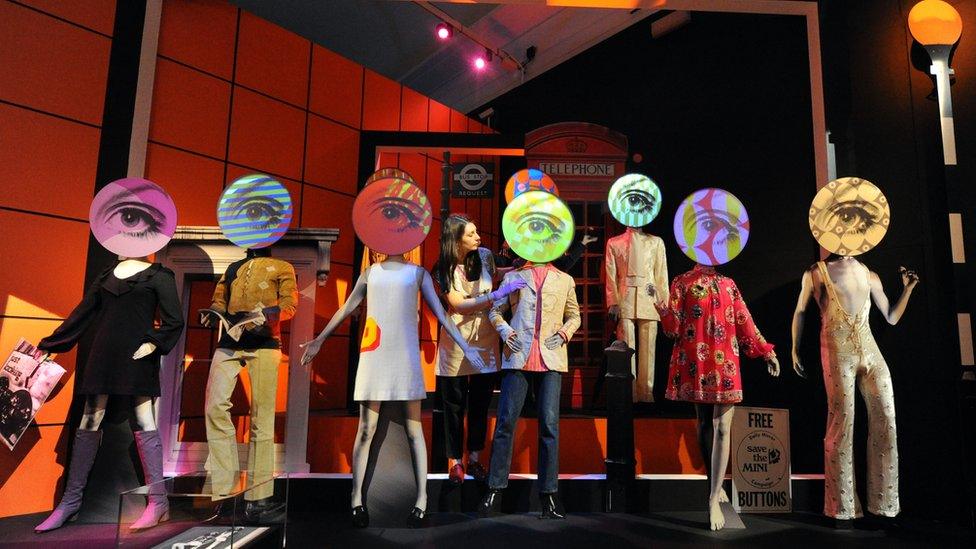
The V&A has just opened an exhibition about the social revolution of the late 1960s
While the V&A has a global outlook, Mr Roth but voiced concerns that the country was becoming more inward-looking.
"I don't want to talk about 'little England', but it will change. It is already happening," he said.
Once the UK leaves the EU, there will also be more barriers to museums and galleries working with others overseas and sharing exhibits, he said.
'International community'
"We all remember how it was when Europe was different [before the EU] - it was more difficult to work with other countries, with other museums. It's about the legal situation, it's about tax and trade and much, much more.
"Those open borders give a completely different situation. But it's more. We work with an international community. We are a local museum for a global audience and we are a global museum for a local audience.
"So we work with a lot of people abroad. Just to work with somebody outside right now is more difficult than it used to be."
Mr Roth arrived at the V&A in September 2011 from the Dresden State Art Collections.
A record 3.9 million people visited the V&A last year and it won the Art Fund's £100,000 Museum of the Year prize this summer.
The full interview can be heard on BBC Radio 4 at 19:15 BST on Friday and then online.

Follow us on Twitter @BBCNewsEnts, external, on Instagram, external, or if you have a story suggestion email entertainment.news@bbc.co.uk, external.
- Published5 September 2016
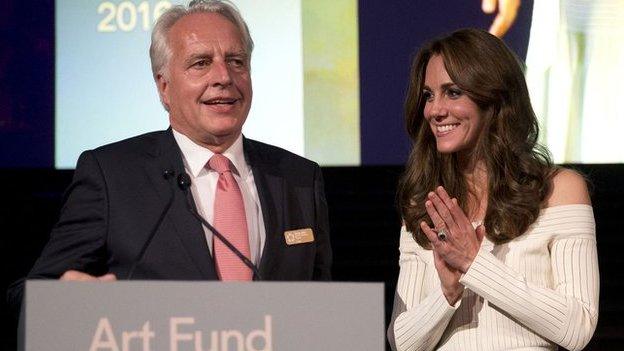
- Published31 August 2016
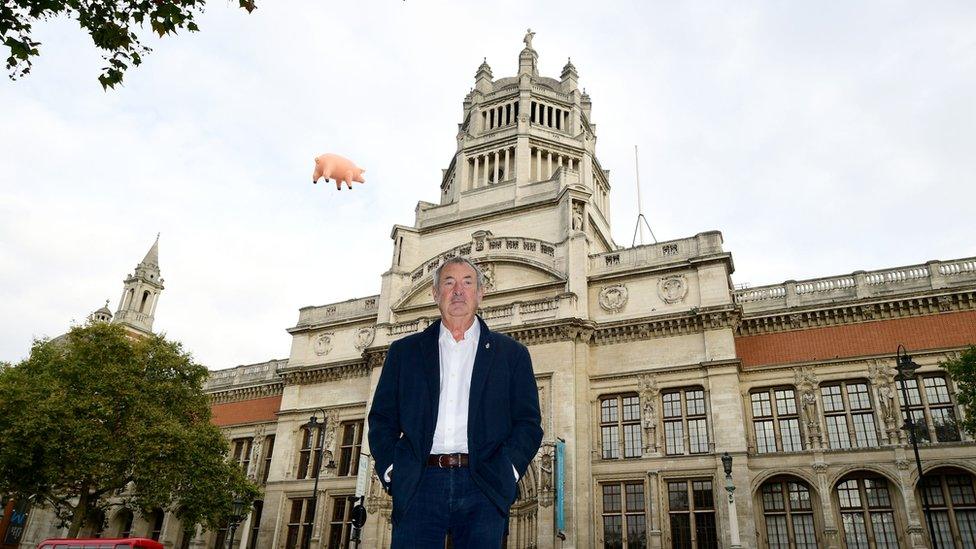
- Published7 July 2016

- Published5 November 2015
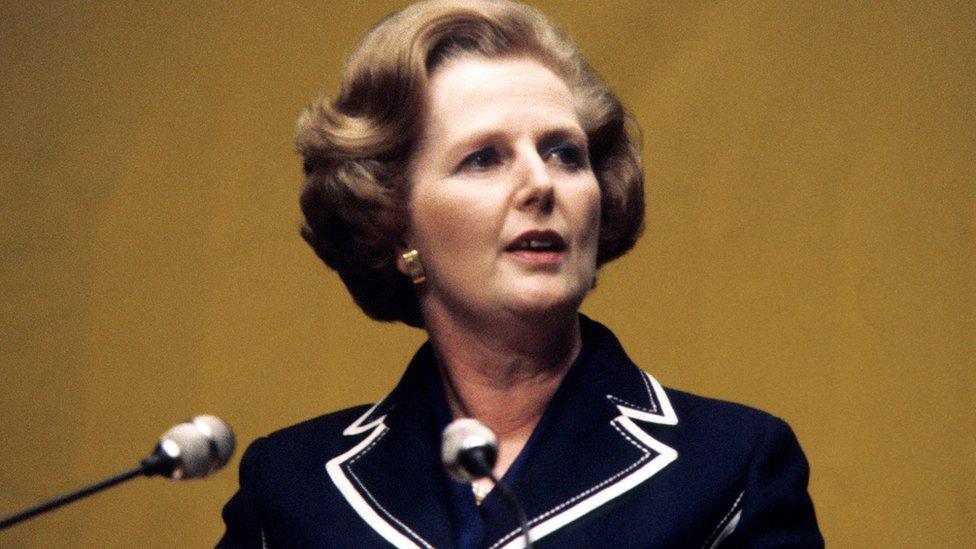
- Published21 April 2011
